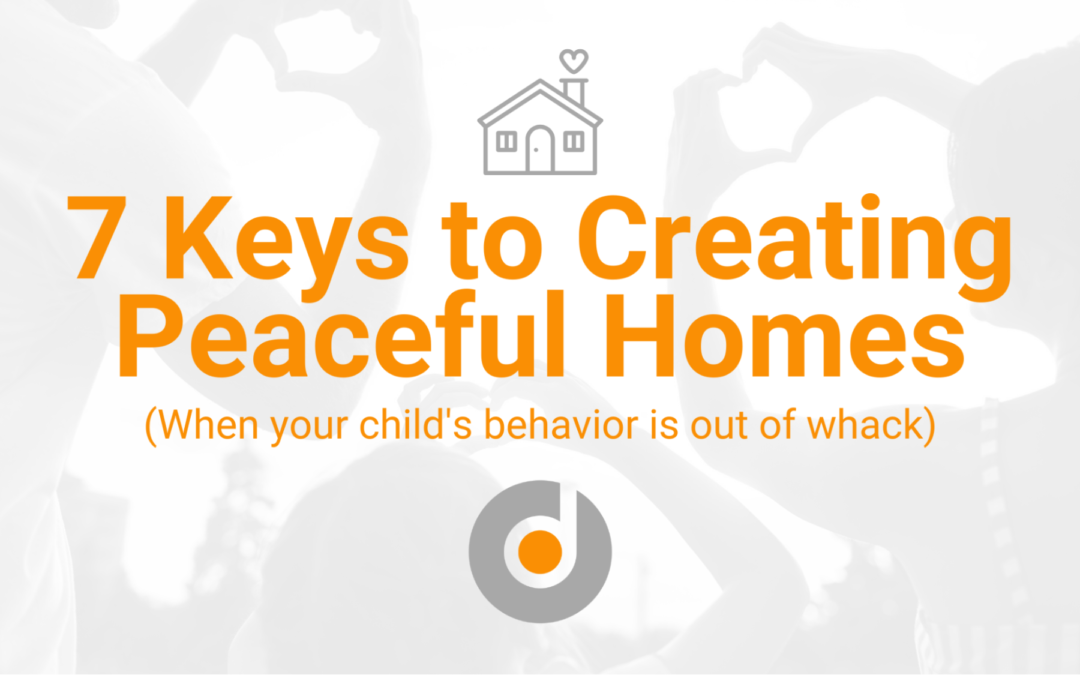If you think about any job that you have worked, you may or may not be able to recall all of the faces and personalities that worked with you as peers, but you can most likely recall each and every boss you have ever had. Even more, you can likely remember specific things they liked, didn’t like, used to do well, and we’re terrible at.
You remember how that boss made you feel because they were the leader, and regardless of what was going on in your personal life, their actions, mindset, approach, and leadership philosophies had a significant impact on your work life (and sometimes how you felt and acted at home as well).
Similar to how that boss at work had the ability to feed into a chaotic or peaceful environment at work by their approach to dealing with the range of personalities they had to manage, you also have the ability to feed into a peaceful or chaotic environment at home through your actions.
Below is a checklist of seven keys to being a good leader at home, and in doing so, managing the chaos of parenting to reach a peaceful household.
1. Understanding yourself
What are your self-limiting beliefs? What are the traumas that you face growing up that still impact you today? Everyone has trauma or experiences that inform how they think, act, and are triggered. If you have not explored what those are, then you will not have had an opportunity to solve the negative experiences and bad learned-parenting habits that you will pass on to your kids.
2. Create an Identity
No, we don’t mean you should create a new persona like in the spy movies. Every parent who wants a peaceful household needs to consider exactly what type of household they want to have, how they want their kids to act, and who they need to be as a household leader in order to reach that goal. If you want your kids to be calm, you have to ask yourself if you are calm. Better yet, ask your significant other…or your kids. If they say “no”, then your first step is to discover how you can make changes so that you can embody what you want them to be. Kids learn through seeing, so you must lead by example.
3. Listen
When your child acts out, your first step should be to try to identify why. What are they saying? Do not just “hear” them, listen to them. Sometimes there is a tendency to think that we already know what they are saying and what they want, and through them talking we are thinking about what kind of answer we are going to give instead of actively listening and looking for clues in their words for a solution.
4. Ask Questions
The sign of any good leader is how well they understand the problem and are able to think of creative solutions that solve that problem. If your child is acting out, ask them questions that show you are taking them seriously and actually care. Then ask follow-up questions. If you are going to be the household leader, you need all of the information possible to make the right decisions. They will feel better just by seeing that you care enough to ask the right questions, and often they will divulge the source of their angst.
Just make sure you think a lot about your voice tone and how you ask the questions. The right question, the wrong way is the wrong question.
5. Understand
Once you feel as if you have a handle on why your child is acting out, repeat it back to them. This serves the purpose of:
- Making sure you do, in fact, understand what is the source of their frustration
- Lets them know that you care enough about them, how they feel, and what is important to them to actually listen
This is important because a lot of times, they just want to be heard. Plus, you cannot solve a problem you do not fully understand.
Communicate
Active listening is a key component of effective communication. This type of listening involves asking open-ended questions, non-judgemental responses, and authentic engagement. When you are listening to accept your child’s challenges, you are taking steps to communicate their needs.
Collaborate
Collaboration is the practice of creating a win-win environment for you and your child so they feel a part of the solution. This type of effort builds your child’s willingness to be a constructive partner in household projects and challenges. Achieving this level of inclusion creates an environment of harmony and peace.
When you are achieving success in this area of your parenting, you may discover the need to grow to the next level of your development with custom parent coaching. Remember you can reach out to the Drama-Free Parenting team for more tips!

